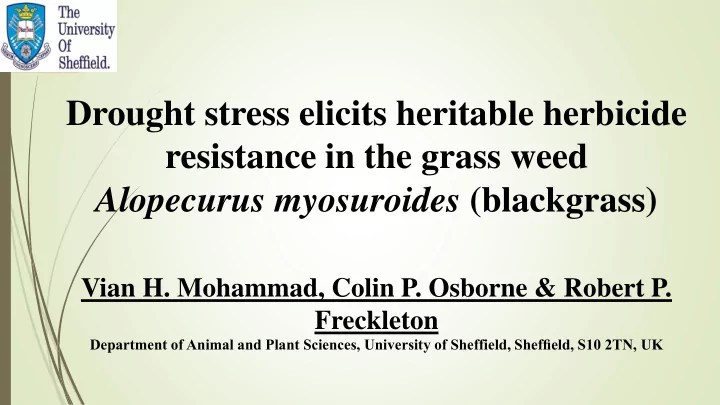

Drought stress elicits heritable herbicide resistance in the grass weed Alopecurus myosuroides (blackgrass) Vian H. Mohammad, Colin P. Osborne & Robert P. Freckleton Department of Animal and Plant Sciences, University of Sheffield, Sheffield, S10 2TN, UK
Objectives whether exposure to stresses such as drought tends to promote the evolution of herbicide resistance; how rapidly herbicide resistance can be selected in populations with different exposure histories; and whether such evolution is mediated through inherited genetic change or via non-genetic mechanisms. www.flora-west-europa.eu www.slideshare.net/TacTac-RAS/ivo-brants-wrm-prague
Drought stress experiment Herbicide treatment experiment Alopecurus myosuroides Seeds of first generation of droughted parental plants planted Five different populations plants exposed to a dose of Seeds of all populations planted fenoxaprop-p-ethyl herbicide (at 3-4 tiller stage) Lethal dose Sublethal dose 40 g a.i. h -1 20 g a.i. h -1 Plants exposed to different levels of drought stress (30DAG) None Medium drought High drought 4 weeks after the herbicide application survival, damaged and dead plants recorded survival damaged dead Growth and survival recorded Seeds of first generation collected
Results Herbicide resistance of F1 offspring Effect of drought treatment Alopecurus myosuroides (blackgrass) Drought stress led to herbicide resistance in black grass. Resistance was heritable and evolved in a single generation.
Recommend
More recommend